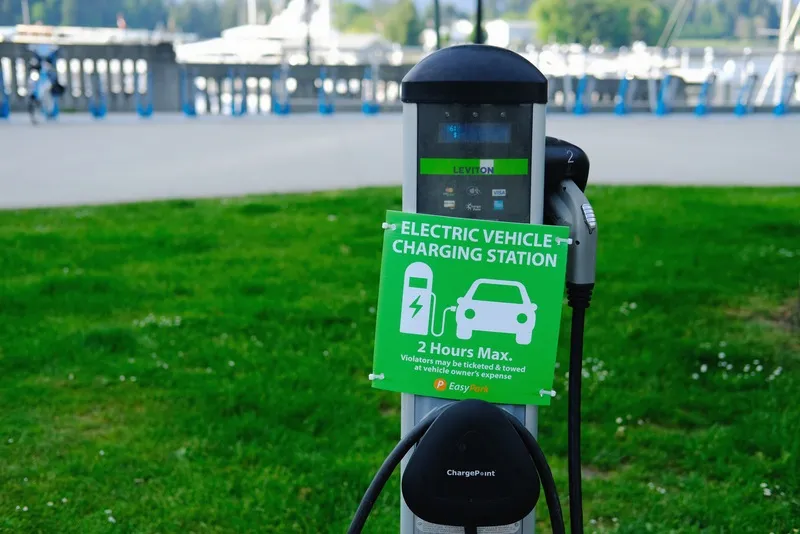Autonomous vehicles will enter mass production by 2020 as more and more major auto makers in recent years have committed to their R&D, according to Topology, a division of TrendForce. Furthermore, the scale of the market will likely surpass a million vehicle mark by 2035. Eric Chang, analyst for Topology, stated the future development of autonomous vehicles will depend on the following technologies: sensors for reading biological data inside vehicle and environmental data outside; communication technology;
April 13, 2015
Read time: 3 mins
Autonomous vehicles will enter mass production by 2020 as more and more major auto makers in recent years have committed to their R&D, according to Topology, a division of TrendForce. Furthermore, the scale of the market will likely surpass a million vehicle mark by 2035. Eric Chang, analyst for Topology, stated the future development of autonomous vehicles will depend on the following technologies: sensors for reading biological data inside vehicle and environmental data outside; communication technology; and driver decision-making system. Every one of these technologies is indispensable to the industry.
With infotainment systems pushing new boundaries, new car models now come with a basic system based on the Internet of Vehicles (IoV) paradigm. Based on Topology’s projection, 75 per cent of the world’s cars will be connected by 2020, and the growth of IoV will bring in around US$2.94 billion in revenue. The direction of IoV research in developed countries is currently toward driving safety technology and emergency rescue features. Consumers, however, are mainly interested in the convenience factor.
Many big auto makers launched their automated driving systems products at this year’s CES. Fuelled by the efforts made by Google in its driverless car project, traditional car makers are eager to show the results of their research to the public. Besides automotive manufacturers, component manufacturers (311 Bosch and Denso) and semiconductor manufacturers (7865 Texas Instruments and 6367 Infineon) are also aggressively engaging in R&D of automated driving systems. Their approach is to enter this field with products such as sensors and driver assistance systems.
Advances in automated driver system will also drive developments in smart cars’ driving assistance systems and IoV-related technologies. Topology expects these products and services will become mainstream in the auto market during the period of 2015~2020. By then, advanced driver systems (ADAS) will be in the majority of vehicles. ADAS products that primarily alert the driver of potential accidents are likely to become the standard in all entry-level vehicles. Products that offer the ability to take over control of the cars, by contrast, will become optional purchases. As for the IoV market, the collaboration among different sectors will accelerate its growth. These collaborators include auto makers, semiconductor companies, governments (that are building ITS-related infrastructures), providers of ITS-related services (such as ETC), and telecom operators.
“The realisation of a driverless car depends on ADAS that provides excellent safety features and IoV that gives smart cars the ability to learn,” said Chang, “and only then can a truly automated driving system be put on the road.” Thus, the important step for companies working on automated driving systems is to have ADAS and IoV equipped in mass-produced vehicles.
With infotainment systems pushing new boundaries, new car models now come with a basic system based on the Internet of Vehicles (IoV) paradigm. Based on Topology’s projection, 75 per cent of the world’s cars will be connected by 2020, and the growth of IoV will bring in around US$2.94 billion in revenue. The direction of IoV research in developed countries is currently toward driving safety technology and emergency rescue features. Consumers, however, are mainly interested in the convenience factor.
Many big auto makers launched their automated driving systems products at this year’s CES. Fuelled by the efforts made by Google in its driverless car project, traditional car makers are eager to show the results of their research to the public. Besides automotive manufacturers, component manufacturers (
Advances in automated driver system will also drive developments in smart cars’ driving assistance systems and IoV-related technologies. Topology expects these products and services will become mainstream in the auto market during the period of 2015~2020. By then, advanced driver systems (ADAS) will be in the majority of vehicles. ADAS products that primarily alert the driver of potential accidents are likely to become the standard in all entry-level vehicles. Products that offer the ability to take over control of the cars, by contrast, will become optional purchases. As for the IoV market, the collaboration among different sectors will accelerate its growth. These collaborators include auto makers, semiconductor companies, governments (that are building ITS-related infrastructures), providers of ITS-related services (such as ETC), and telecom operators.
“The realisation of a driverless car depends on ADAS that provides excellent safety features and IoV that gives smart cars the ability to learn,” said Chang, “and only then can a truly automated driving system be put on the road.” Thus, the important step for companies working on automated driving systems is to have ADAS and IoV equipped in mass-produced vehicles.







